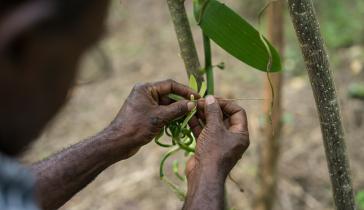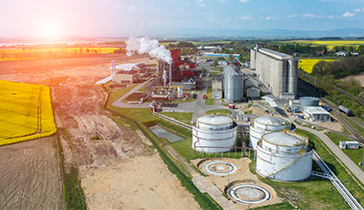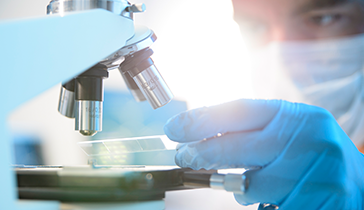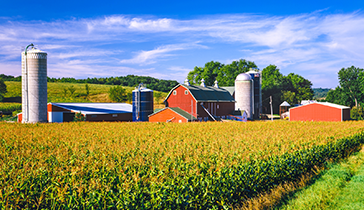Day three of the 2019 BIO World Congress began by awarding three individuals who have had a profound impact on industrial and agricultural biotechnology. It was a fitting moment because, just like them, #BIOWC19 is bringing people, ideas, and technology together to bolster the bio-economy and address society’s most pressing challenges.
Here are some highlights from the third day at the 2019 BIO World Congress…
Recognizing Leaders and Innovators: Advances in industrial and agricultural biotechnology are thriving across the globe as countries turn to companies innovating to address climate change, food security, and health. This rapid expansion would not be possible without industry advocates promoting the benefits of biotechnology.
Former Iowa Governor and former U.S. Department of Agriculture (USDA) Secretary Tom Vilsack was awarded the 12th annual George Washington Carver Award for Innovation in Industrial Biotechnology. He has been one of the strongest advocates in promoting America’s bio-based economy. From his time serving as the governor of Iowa—a leading state in biomass and renewable chemical production and America’s top ethanol producer—to his leadership at USDA, he has consistently championed policies that advanced industrial biotechnologies and grew America’s rural economy.
- “The bio-industry continues to hit targets that no one thought possible...and is working on technologies and solutions that most could never see.”

Reshma Shetty, the co-founder of Gingko Bioworks, was awarded the Rosalind Franklin Award for Leadership in Industrial Biotechnology and Agriculture. Each year, this award is given to an outstanding woman in industrial or agricultural biotech who has made significant contributions to the advancement of the bio-based economy and innovation.
- “I am more encouraged than ever by the trajectory of this industry. We’ve had amazing advances in the foundational technology of our field.”

Go Deeper: BIO Announces 2019 Rosalind Franklin Award Winner: Reshma Shetty, Gingko Bioworks
Mario Pennisi, of Elo Life Systems Inc., was awarded the BIO Leadership and Legacy Award in Industrial Biotechnology and Agriculture. With a career spanning more than 35 years, Mario is an experienced and sought-after life sciences professional, industry advocate, and trusted advisor. Due to his work, he was recently recognized by The Courier Mail as one of Queensland’s 100 most influential people.
- “We are committed to this sector because we know it will make a difference.”

Investing in a Bio-Based Future: The second plenary session of the day focused on how a sustainable society is dependent on countless individuals and entities. Farmers, refiners, manufacturers, distributors, retailers, consumers, and governments are all interconnected. How this chain interacts will dictate if we can meet society’s food, textile, product, and fuel needs without compromising future generations.
One question from the session’s moderator, Cargill’s Marty Muenzmaier, that sparked an engaging conversation was: How do you define “sustainability” and what are the key aspects of measuring it?
- United Soybean Board’s Tim Venverloh on the definition of “sustainability”: “It was, and still is to me, the same definition as it was in the 80s, which is ‘using resources in a way that leaves resources for future generations to also use.’”
- Keystone Policy Center’s Franklin Holley explained that resiliency and collaboration are vital in the pursuit of sustainability: “Sustainability is a moving target … We have to be positioned in a way that we can respond.”
- Avantium’s Eelco Blum highlighted that when measuring sustainability, it is key for the value chain to establish a common language and vision, set standards, identify what is being measured, and ensure correct comparisons.

BIO Buzz Center With Cassie Edgar, Tropic Biosciences: Americans rely on their local produce sections being stocked full with a variety of fruit and vegetables. Popular fruits like the banana, however, have been and will continue to be under threat from climate change. Tropic Biosciences is one company that is exploring new tools like gene editing to protect the banana and other produce that we love. Cassie Edgar with the Tropic team stopped by the BIO Buzz Center to talk about the work the company is doing.
Back-to-Back Gene Editing Sessions: This afternoon, two talks shined a spotlight on how gene editing could benefit society with a more sustainable food system. With gene editing, we now have the ability to produce foods that have improved nutrition, reduce food waste, increase crop yield, combat disease, and enable environmentally friendly farming practices.
- “We can do almost anything we can envision or imagine with the tools of gene editing, like CRISPR.” – Iowa Agriculture Secretary Mike Naig
ICYMI, Secretary Naig’s #BIOWC19 op-ed in the Des Moines Register: “Putting innovative ideas into action means we are making advancements every day to deliver more nutritious food, cleaner-burning biofuels, healthier animals, cleaner water and a better standard of living for families across the state.”
Go Deeper: Innovature.com
The gene editing talks also asked: What will it take to see gene editing flourish as a successful tool in the food system of tomorrow? Barb Glenn, CEO of the National Association of State Departments of Agriculture, said trust and engagement with consumers are important as well as an inclusive government process:
- “Part of building trust is engaging people with the excitement of having an innovation mindset.”
- “From the State Department of Ag perspective, we want to see a workable process that leads to approvals and commercialization...and we want USDA and even EPA to have a seat at the table along with FDA so it’s a more inclusive discussion.”
BIO Buzz Center With Kelly Hawkinson, DSM: One of the most critical innovations to Iowa’s bio-based economy is the development of biofuels made from crops grown right here in the Hawkeye State. Whether it’s ethanol made from corn or other advanced biofuels made from new feedstocks like carbon-rich gases, biofuels hold tremendous promise to decarbonize our roadways and airways. DSM’s Kelly Hawkinson stopped by the Buzz Center to discuss the work her company is doing with biofuels and other bio-based products.
Commercializing Alternative Proteins: With a global population set to hit nearly 10 billion in 2050, the race is on to identify sustainable alternatives to conventional animal agriculture. And with plant-based foods taking off as sustainable alternatives to conventional protein, consumer demand is there. Two alternative protein companies joined the panel: Spero Foods and New Age Meats.
Spero Foods is creating plant-based products that are re-inventing dairy and eggs. CEO Phaedra Robinson said 50 percent of U.S. consumers are trying plant-based dairy, but it could be higher. She said companies must focus on making bio-based products that have a better taste, more affordable price, improved nutrition, and clean ingredients.
Go Deeper: Nosh: Spero Foods Launches Non-Dairy Egg, Cheese and Dessert Products
New Age Meats is making meat from animal cells. The company’s first pork sausages were made with a few cells from a pig named Jessie. The cells were grown in a nutrient-rich broth, and two months later…sausages!
- “We control the cells. We control the environment that the cells are in. We also control all of the amino acids, and fatty acids, and minerals, and salts, and such that go into the cell that give the cell its taste and also create its health profile. So we can create better meat. Meat that is tastier, meat that is healthier, and meat that is more sustainable.”
Go Deeper: Business Insider: We tried the first lab-grown sausage made without killing animals. It was smoky, savory, and tasted like breakfast
Join the conversation: Use #BIOWC19 on Twitter, Facebook, and LinkedIn to engage with attendees, share session discussions, and highlight the benefits of industrial and agricultural biotech. And be sure to follow BIO onTwitter,Facebook, andLinkedIn.




.jpg?itok=5epg0qxZ)














.png)


